When it comes to beauty products, we all want to feel confident and radiant, but sometimes things don't go as planned. If you've experienced any adverse effects from a cosmetic product, it's essential to voice your concerns to ensure safety and transparency in the beauty industry. You may be wondering how to go about drafting a complaint letter effectively. In this article, we'll guide you through a helpful template to make sharing your experience easier, so you can help others and hold brands accountableâread on to find out more!
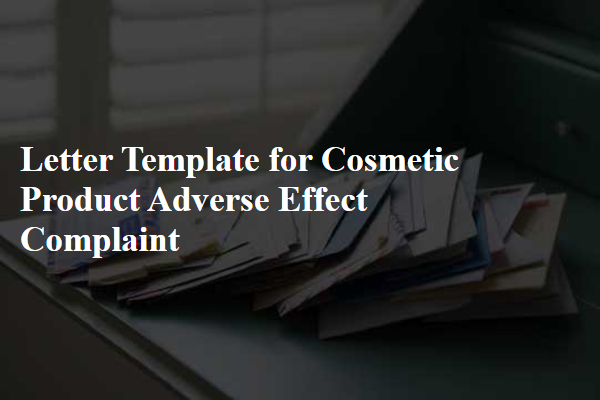
Clear Identification of Product and Issue
Consumer complaints regarding adverse effects from cosmetic products often stem from specific brands or formulations. Acne treatment products, such as benzoyl peroxide treatments, may cause irritation or allergic reactions in sensitive skin types. Moisturizers containing fragrances or alcohol can result in dryness or redness for some individuals. Certain makeup items, like foundations with heavy silicones, could lead to breakouts or clogged pores, especially in those with oily skin. Proper identification of the product includes noting the brand name, specific product line, and batch numbers, which enables manufacturers to trace issues effectively. Documented reactions, including rashes or swelling, provide essential information facilitating investigation and potential recalls.
Detailed Description of Adverse Effect
Cosmetic products like moisturizers or serums can cause adverse effects such as skin irritation or allergic reactions. For instance, some users report rashes (red, itchy patches) or eczema flare-ups on sensitive areas near the eyes, resulting from ingredients like fragrance or parabens. Symptoms may include swelling or redness within hours of application, affecting daily routines. Moreover, prolonged use can lead to dermatitis, characterized by dryness or peeling skin, detracting from the intended benefits of hydration or anti-aging. Reporting these adverse effects helps in compiling safety data that can guide regulatory actions and improve product formulations.
Relevant Purchase Information
Relevant purchase information includes the date of purchase, store name, and product details. The date of purchase (such as March 15, 2023) allows for tracking the product batch. The store name (for example, Sephora) provides context regarding the retailer's reputation and return policies. Product details encompass the cosmetic item's name, brand (like Maybelline), and specific features (such as foundation with SPF 20). This information is essential for identifying potential recalls or manufacturer concerns related to the purchased item.
Contact Information for Follow-Up
Cosmetic products, particularly those containing active ingredients like Retinol or Hydroquinone, can occasionally lead to adverse effects such as skin irritation or allergic reactions. Specific reactions can include rashes, redness, or peeling, which may occur within days of application. Notable cases involve individuals using products from well-known brands, such as Neutrogena or Olay, who reported symptoms after using new skincare formulas. To ensure proper follow-up, complainants should provide contact details, including a valid email address and phone number, along with a clear description of the product used, batch numbers, and specific side effects experienced. Accurate data can facilitate better consumer safety measures and lead to improvements in product formulations.
Request for Resolution or Refund
Adverse effects from cosmetic products often lead to discomfort and dissatisfaction for consumers. Many users experience skin irritations, rashes, or allergic reactions (such as contact dermatitis) after using products containing chemicals like parabens or fragrances. These reactions can vary in severity, with some individuals developing symptoms within minutes, while others may have delayed responses. The request for resolution or refund typically involves reaching out to the manufacturer or retailer, providing details about the product, batch number, and the specific adverse effects experienced. Documentation, such as photographs of the reaction or medical reports, may support the claim. Consumers expect prompt and effective responses, fostering trust in brands that prioritize customer safety and satisfaction.
Letter Template For Cosmetic Product Adverse Effect Complaint Samples
Letter template of complaint regarding adverse skin reaction to cosmetic product.
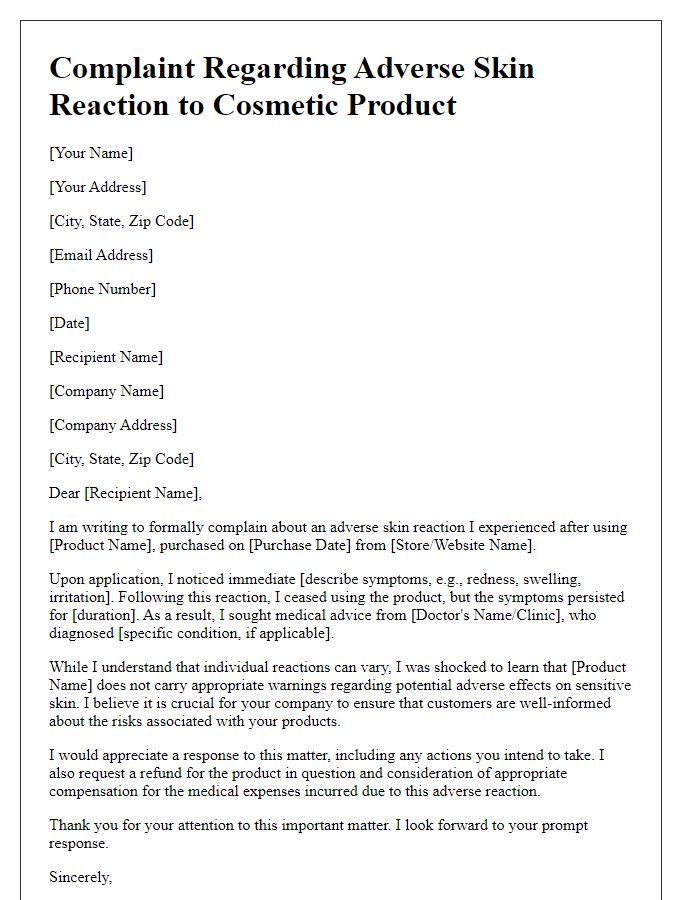
Letter template of report on unexpected side effects from beauty product use.
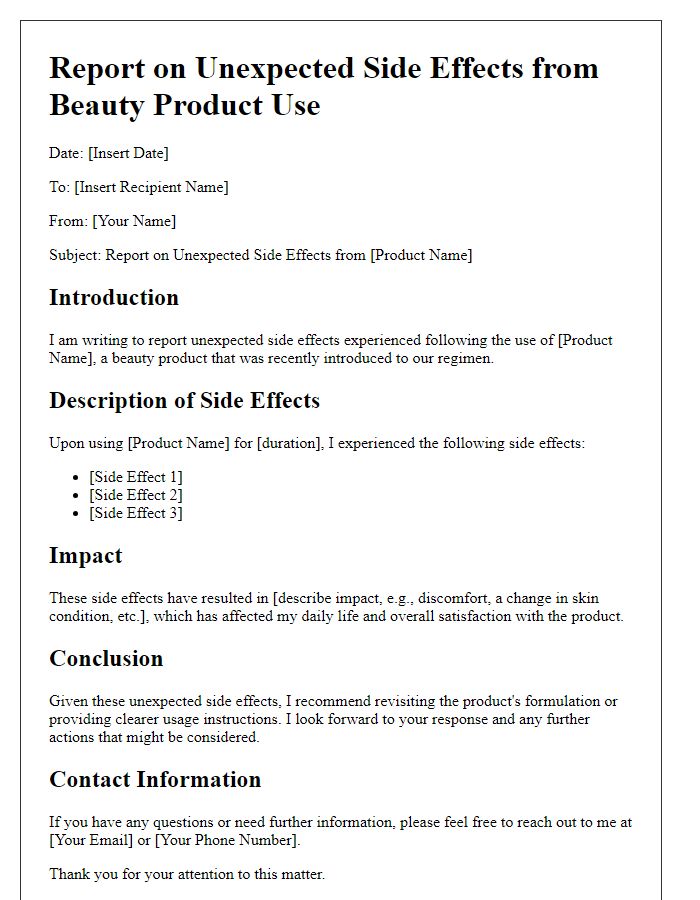
Letter template of notification on adverse health impact from skincare item.
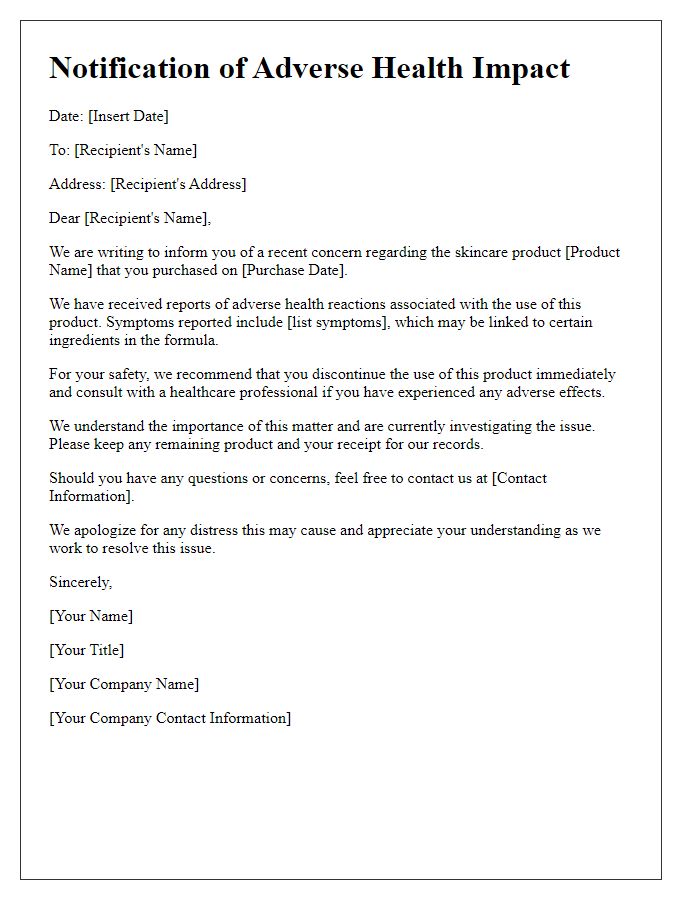
Letter template of grievance related to allergic reaction from makeup product.
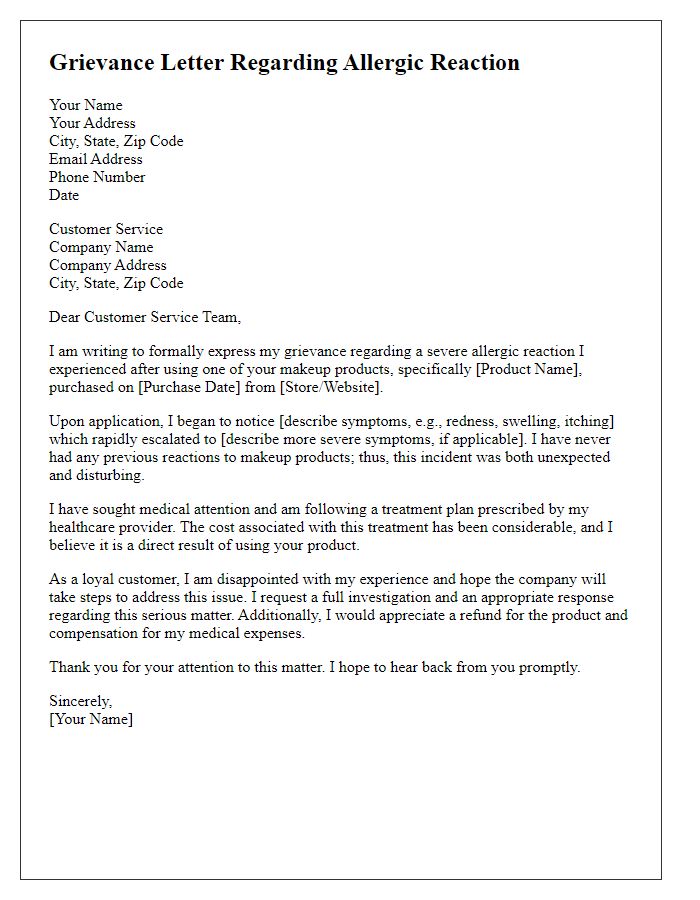
Letter template of feedback concerning negative response to cosmetic formulation.
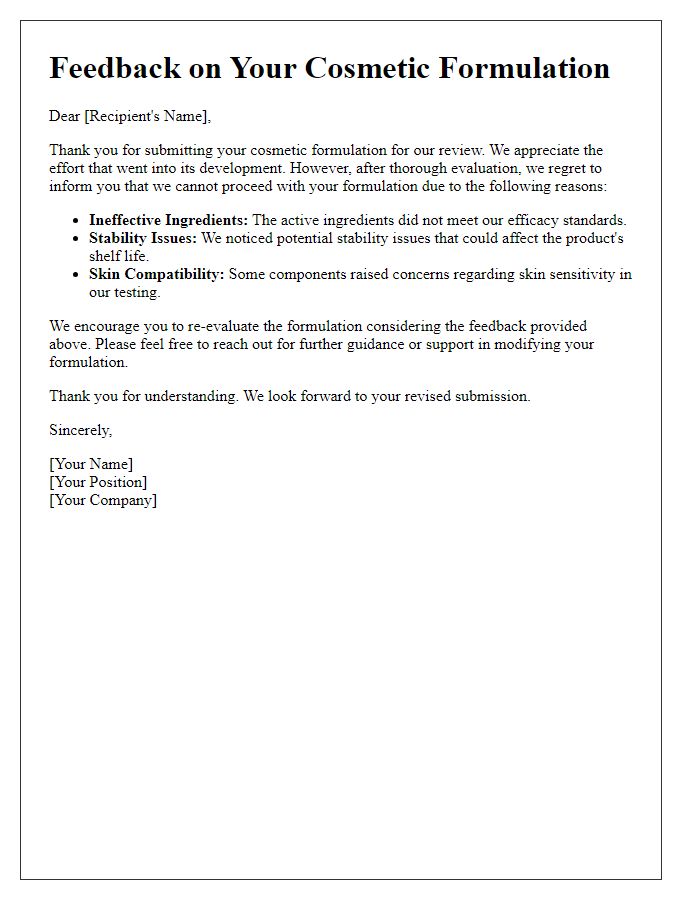
Letter template of inquiry about adverse effects associated with beauty product.
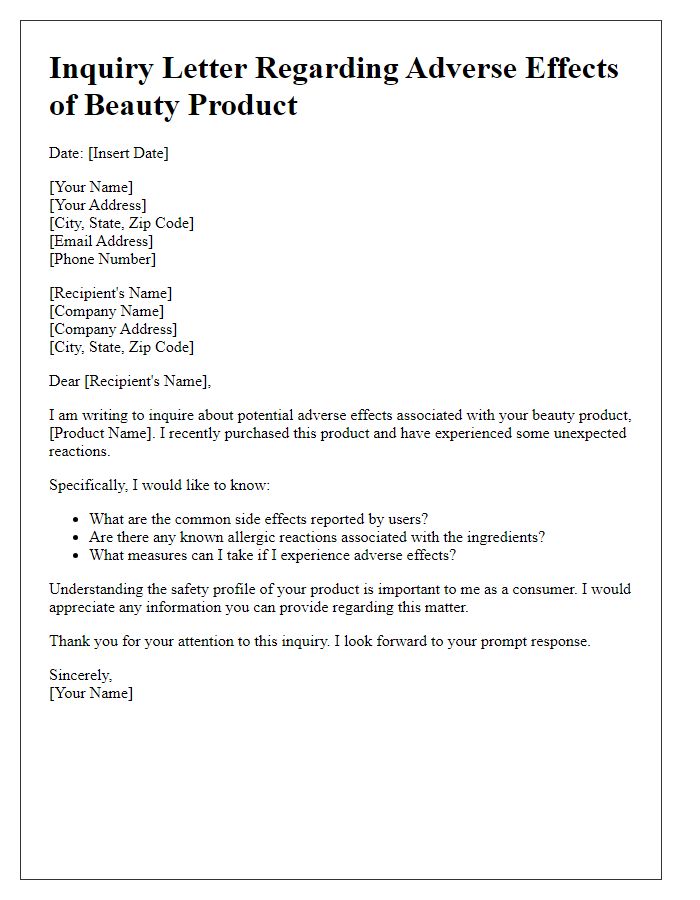
Letter template of documentation for side effects experienced from cosmetic application.
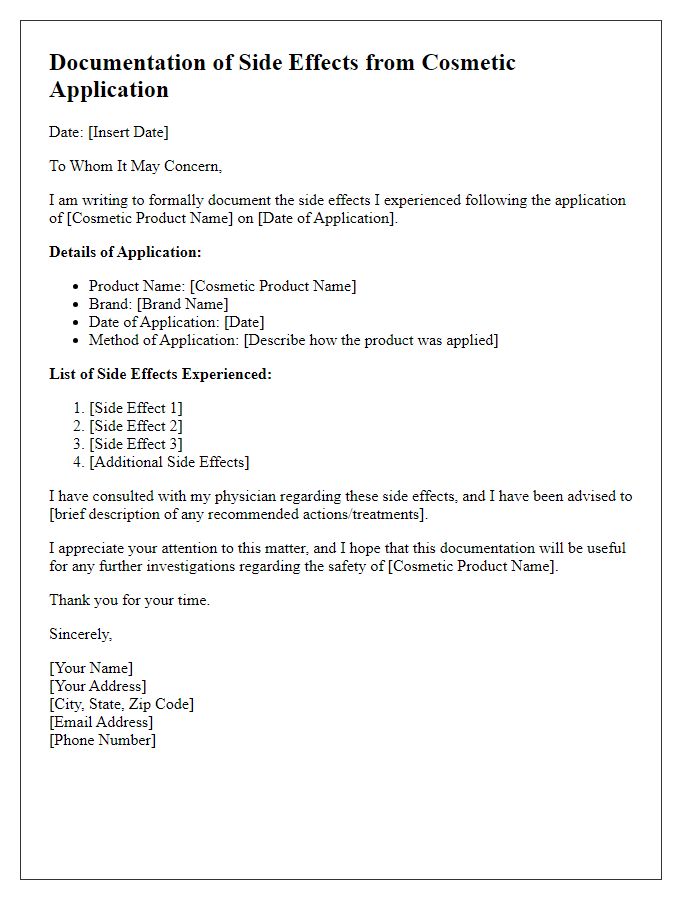
Letter template of appeal for resolution concerning adverse reaction to hair dye.
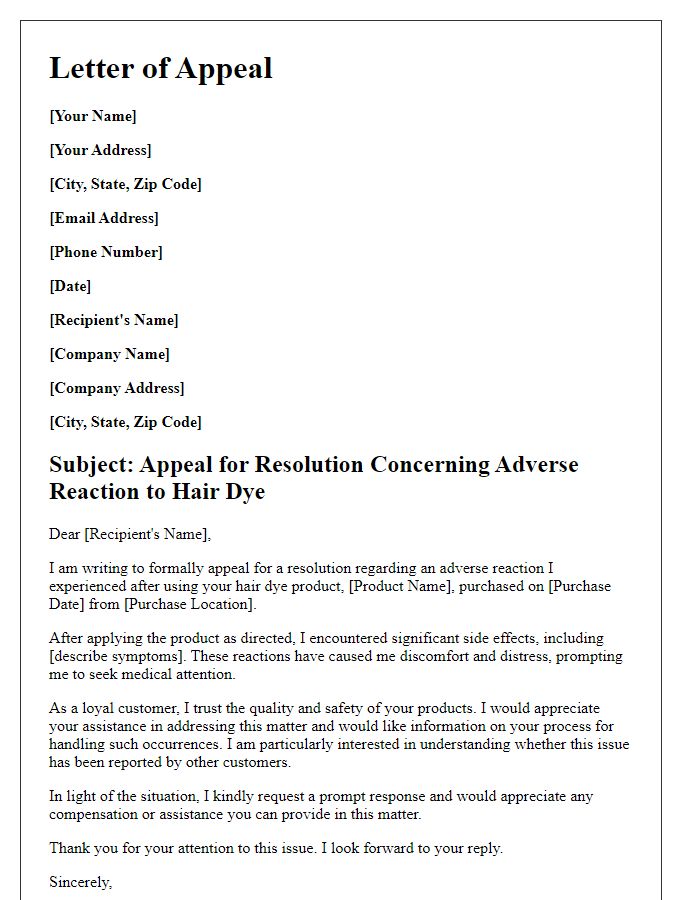

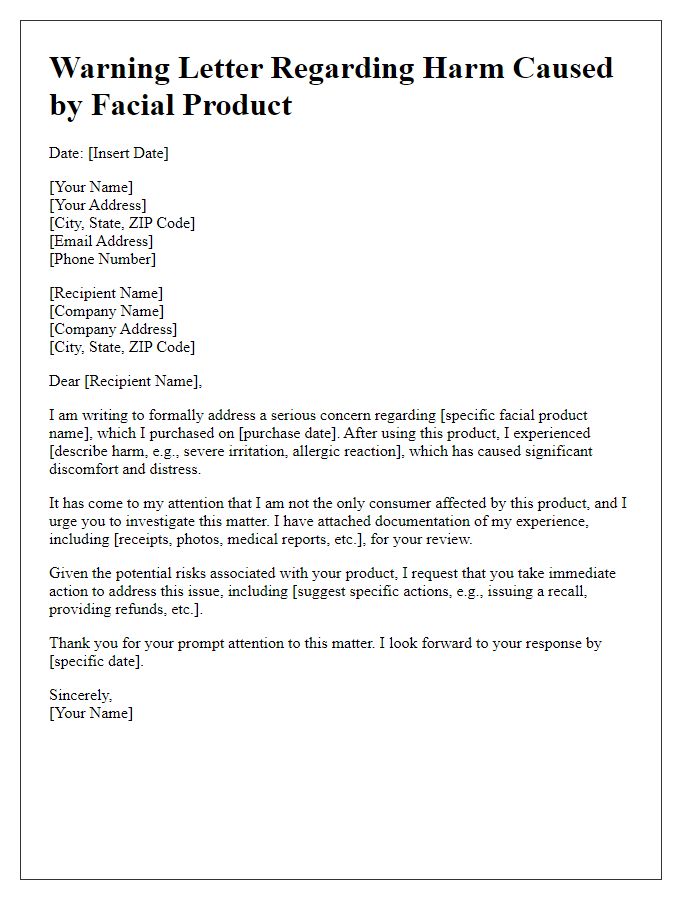
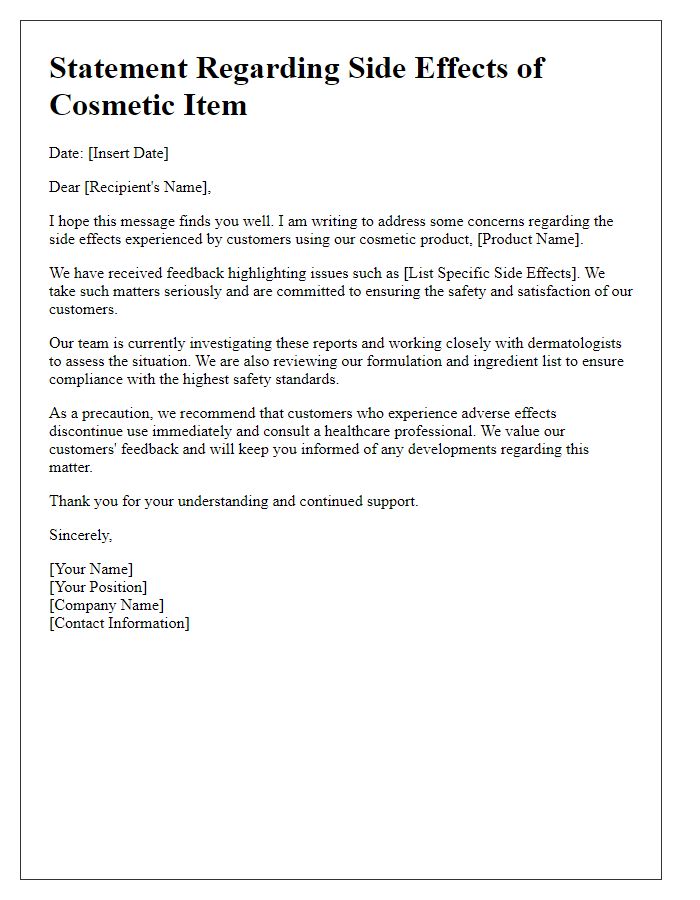


Comments